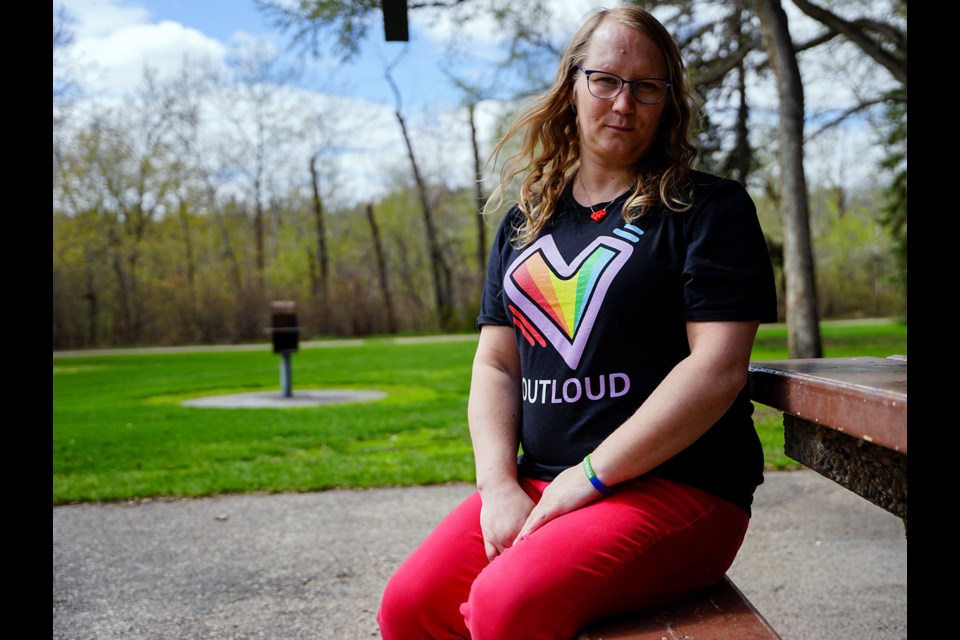Six days.
Lyn Markham had the date circled in her calendar for nearly a year. But on March 18 – with less than a week until she was scheduled to fly to Montreal for a life-changing operation – she received a crushing phone call.
The 36-year-old Paul Kane graduate came out as transgender six years ago. Since then, she has been jumping through various hoops in an often complicated health care system to receive gender-affirming care, and last year Markham finally got a date for a vaginoplasty.
When she was told Centre Métropolitain de Chirurgie in Montreal was closing due to the COVID-19 pandemic and her operation was indefinitely postponed, it was as though the usual hoops she has to jump through that are “on fire, ten feet in the air” were suddenly transformed into a giant wall.
Sadness, grief and shock overcame Markham, and she said she “just hid," withdrawing from friends and family except to tell them she was okay.
For some transgender or non-binary people, gender affirming operations and procedures are a lifeline that alter their primary sex characteristics to more accurately reflect their gender identity. But wait times can be very long and extremely inconsistent.
A 2017 University of British Columbia study showed wait times range from one month to as long as nine months. Half of the 337 participants in the study had been waiting at least 17 months for their procedure.
Travel time can also be very long for procedures, since there is a limited number of specialists able to provide procedures. Markham must fly to Montreal, because there are no Alberta-based clinics that offer vaginoplasties covered by provincial healthcare.
The waiting period is a volatile time that can place high levels of strain on the mental health of non-binary and transgender people. For people involved in the survey who were waiting for surgery, 28 per cent found the period “extremely stressful,” while only 10 per cent were not stressed.
For Shylo Rosborough, a transgender man who works with United Church Canada as an affirming minister co-ordinator, learning he had to wait an additional four months for hormone therapy in 2016 felt like “the end of the world.”
“Not only are you yourself stuck in this body, society sees you in that body all the time, and so you can never escape it,” he said. “You're in this constant state of hating your body, being misgendered, not being able to fully transition even though you want to.”
As part of his work, Rosborough was asked by the St. Albert United Church to include in his monthly newsletter a prayer for LGBTQ people on how the pandemic is impacting queer folks. He decided to raise awareness of the impact prolonged wait times have on transgender and non-binary people, since Alberta postponed nearly 7,500 surgeries due to the COVID-19 pandemic.
System 'broken'
St. Albert LGBTQ advocate and MacEwan University professor Kris Wells said with an already significant backlog for medical procedures, there is concern about how the system will possibly catch up.
“Often the longer that people are on a waitlist ... it increases their stress and anxiety. For many trans individuals, gender affirming care and surgery is lifesaving,” said Wells, who is the Canada research chair for the public understanding of sexual and gender minority youth.
The current transgender health system is broken, according to Wells, and the pandemic has only put a spotlight on where the fractures are. Alberta’s system is based on an “old and outdated” psychiatric model that promotes gatekeeping and bottlenecks access to critical supports and services for trans and non-binary people.
Rosborough’s transformation began in 2016, when after sitting on a wait list for 18 months he saw a psychiatrist briefly who diagnosed him with gender dysphoria. From there, a variety of supports and procedures opened up, with varying wait times.
A scheduling mix-up to begin hormone treatment in 2016 resulted in Rosborough waiting four months longer than anticipated. Eighteen at the time, Rosborough said he physically felt like he could wait no longer, and was driven to a dark place, including suicidal thoughts.
After successfully beginning testosterone injections, he got a hysterectomy in 2018 and finally received top surgery in March 2019, which he called the “end goal.” An active person whose lifestyle revolved around lifeguarding and other sports, he had to wear an uncomfortable binder almost constantly to minimize the appearance of breasts prior to the surgery.
Instead of such a long, arduous process with so many barriers in the way, Wells instead advocates for a consent-based model, which means the Alberta healthcare system needs to be much more responsive to the needs of trans and non-binary individuals.
“Perhaps what this pandemic crisis has shown us is that the old structures and systems aren't working, and they need to be revamped,” Wells said.
Although the Montreal clinic Markham was set to have her procedure in is closed until at least end of May, she said she has hope for the future. What keeps her going is a deep understanding of who she is, which she has understood to some extent since being a child.
“I am Lyn. I am a girl, and it’s something that I’ve wanted for a long time.”




